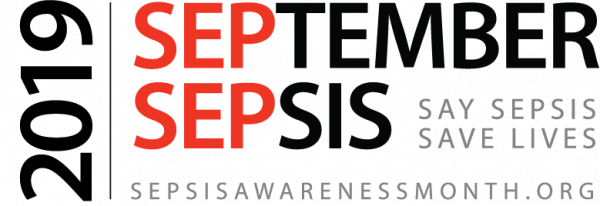HARLINGEN — Sepsis is a medical emergency that kills more than 258,000 Americans each year, but unlike diseases such as cancer that have the attention of the community, only 55 percent of Americans have ever heard of sepsis.
According to the U.S. Department of Health and Human Services Centers for Disease Control and Prevention, sepsis, or blood poisoning, is caused by the body’s overwhelming and life-threatening response to infection that if untreated, can cause tissue damage, organ failure, and death.
Sepsis can be caused by any kind of infection, whether it be bacterial, fungal, or viral, and even injuries as simple as bug bites, cuts and grazes can all lead to sepsis.
“This is such an important issue for our community to be aware of,” said Dr. Christopher David Romero, Internal Medicine Specialist for Valley Baptist Medical Center-Harlingen. “Understanding the warning signs and symptoms of sepsis is critically important to preventing organ and tissue damage.”
Those at the highest risk of developing sepsis include the very young and very old population, as well as people with chronic or serious illnesses.
“Sepsis can be caused from any form of an infection anywhere in the body,” Romero said. “The best way to prevent infections is through the use of good hygiene, ensuring vaccinations to prevent illnesses, as well as properly caring for open wounds.”
Signs and symptoms of sepsis can include any of the following:
- Fever and chills
- Rapid breathing/breathlessness
- Pale or mottled skin
- Extreme pain
- Weakness, confusion, difficulty walking
- Low urine output
- Temperature higher than 101F or lower than 96.8F
- Rapid heart beat
According to the U.S. Department of Health and Human Services Centers for Disease Control and Prevention, sepsis is such a difficult medical complication to diagnose because it can happen quickly and can be confused with other medical conditions.
While sepsis can be treated successfully if diagnosed early by physicians, Roy Evans, Chief Quality Officer at Valley Baptist Medical Center-Harlingen, said the best defense against sepsis is community education and awareness.
“The main challenge is that the community needs to be aware of the signs, symptoms, and dangers of sepsis,” he said. “In the medical community, we often talk about the signs and symptoms of heart attack, but sepsis should be talked about as well because it can have a serious impact on the entire body. It should be recognized in the home the same way stroke and heart attacks are. Sepsis is an emergency – period. It is our obligation as a healthcare facility to educate our community.”
According to the U.S. Department of Health and Human Services Centers for Disease Control and Prevention, sepsis can be prevented by:
- Talking to your doctor or nurse about steps you can take to prevent infections. Some steps include taking good care of chronic conditions and getting recommended vaccines.
- Practicing good hygiene, such as handwashing, and keeping cuts clean until healed.
Romero said time is of the essence when dealing with sepsis.
“With sepsis, time is of the essence,” Romero said. “Knowing the signs and seeking medical treatment immediately can save a life.”
Romero also said that Valley Baptist-Harlingen has taken special steps to insure that suspected sepsis cases receive appropriate attention.
“All Valley Baptist nurses receive sepsis education, and we have instituted a sepsis protocol that can expedite the care sepsis patients receive,” she said. “Nurses can initialize treatment more rapidly, which can lead to better outcomes for the patient.”
Evans said that patients also play a role in the successful treatment of sepsis, and that patients should be sure to share their concerns and as much information as possible regarding their health with the medical professionals responsible for their care. For example, if a patient suspects that a wound has become infected or that an infection has gotten worse, or if they experience any of the signs or symptoms of sepsis before seeking medical care, that information should be shared with healthcare providers.
“Patients can assist with their treatment by providing as much information as possible,” he said. “They really need to tell the full story regarding their health so that nurses and physicians can provide appropriate healthcare.”





